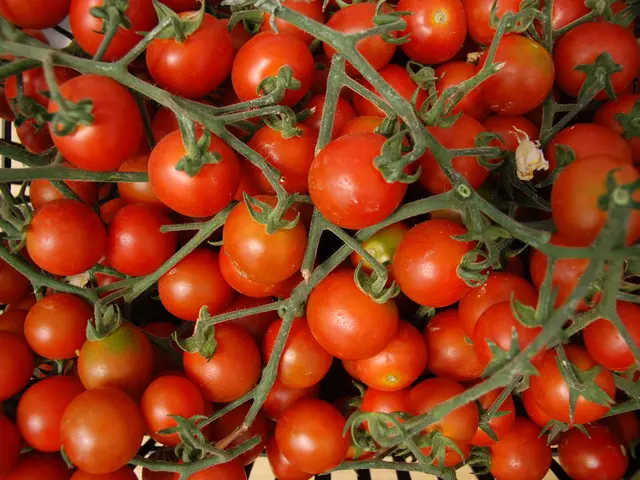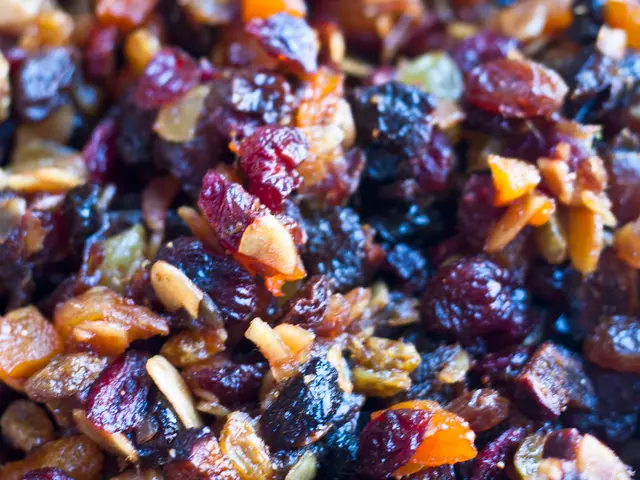Thyroid-harming Dietary Practices to Steer Clear Of
A Warning for Veggies and Vegans: Mind Your Iodine
Folks following a plant-based lifestyle, be it vegan or vegetarian, take heed! Scientists from Queen's University in Belfast (Northern Ireland) have recently found that such diets could potentially increase the risk of developing hypothyroidism, a condition where the thyroid gland fails to produce enough hormones. The results of their research were published in the prestigious journal BMC Medicine.
The study recruited over 466,000 individuals aged 40 to 69 and divided them into six categories based on their dietary patterns. These included vegans, vegetarians, pescatarians (fish-eaters), poultry-lovers, moderate, and active meat-eaters.
After an observation period, it was found that 10,831 participants developed hypothyroidism. At first, the connection between diet and disease seemed unclear. However, upon considering the participants' body mass index, a notable link emerged: vegetarians seemed to face a higher risk of contracting hypothyroidism. Interestingly, at the study's outset, hypothyroidism cases were more prevalent among vegetarians, pescatarians, poultry-lovers, and those with minimal meat consumption compared to meat-lovers.
What could be the possible reason for this unsettling relationship? The scientists propose that an iodine deficiency, a critical micronutrient required for thyroid hormone synthesis, might be the culprit. Iodine is scarcely found in plant-based foods, while marine and dairy products—primary sources of iodine—are often absent from vegetarian and vegan diets.
However, it's essential to note that this discovery doesn't cast a negative light on plant-based diets. Instead, it underscores the significance of maintaining a balanced approach to nutrition, especially when one adopts a restrictive eating pattern. The researchers advise that vegetarians and vegans consider incorporating iodized salt into their diet, consuming seaweed products in moderation, and considering supplements.
To help vegetarians and vegans navigate this challenge, we've outlined some recommended strategies:
Recommended Strategies
- Seaweed Intake:
- Regularly include seaweed like nori, wakame, and kelp in your meals. These are rich in iodine.
- Remember, moderation is key. Consume seaweed about once a week to prevent excessive iodine intake, which can be harmful.
- Keep in mind the iodine content in different types of seaweed vary, so do your homework.
- Iodine-Fortified Foods:
- Use iodized salt in your cooking. It's a common iodine source in many plant-based diets.
- Select iodine-fortified plant-based dairy alternatives to help meet your iodine needs.
- Dietary Planning:
- Aim for a diverse diet that includes other iodine-containing plant foods, though they are less common and usually lower in iodine than seaweed.
- Seek advice from a dietitian or nutritionist to ensure adequate iodine intake without overdoing it.
- Supplements:
- If you struggle to obtain sufficient iodine from your diet, consider iodine supplements, but always consult your healthcare provider or dietitian first to prevent excessive intake.
- Regular Health Checks:
- Regularly monitor your thyroid function to guarantee there are no signs of deficiency or hypothyroidism. This can be achieved through blood tests to check thyroid hormone levels and other health markers.
- Scientists propose that an iodine deficiency, a critical micronutrient required for thyroid hormone synthesis, might be the culprit behind the increased risk of hypothyroidism in vegetarians, as iodine is scarcely found in plant-based foods.
- To help vegetarians and vegans navigate this challenge, it's recommended to incorporate iodized salt into their diet, consume seaweed products in moderation, and consider supplements to ensure adequate iodine intake.
- Given the potential risk of hypothyroidism, it's essential for vegetarians and vegans to maintain a balanced approach to nutrition, especially in health-and-wellness, and consider nutrition facts when planning healthy-diets, ensuring they include sources of iodine and not just rely on supplements for nutrition.







